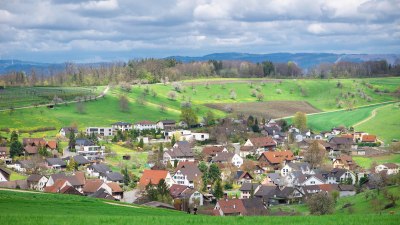The Quiet Rebellion of Living on the Road
Explore the freedom and challenges of living on the road and embracing a nomadic lifestyle.

Image created with Flux Schnell
In a world increasingly dominated by the hustle of modern life, the idea of living on the road represents a quiet rebellion against conventional norms. Many people are choosing this lifestyle not just as a means of travel but as a fundamental shift in how they view work, leisure, and personal fulfillment. This article dives into the motivations, challenges, and joys of embracing a nomadic existence.
The Allure of Freedom
Living on the road conjures images of endless horizons, open highways, and the beckoning of the unknown. For many, the freedom associated with this lifestyle is intoxicating. It symbolizes a break from the nine-to-five routine and the societal pressures that come with it. The nomadic lifestyle allows individuals to choose their own adventure, whether that involves spontaneous trips to national parks, cross-country road trips, or simply exploring hidden gems in local towns.
Freedom also comes in the form of flexibility. When you're not tied down to a lease or a mortgage, every day can bring new possibilities. The ability to move at will, be it to chase warmer weather or experience a different culture, adds a vibrant dimension to life. Weekend excursions become longer explorations, and the mundane often transforms into the extraordinary. This dynamic aspect of living on the road can lead to personal growth and a deeper appreciation for the world around us.
The Modern Nomad
While the traditional image of a nomad might be that of a lone wanderer, today's digital nomads are often equipped with technology that allows them to work remotely. The rise of the internet and telecommunications has enabled a new breed of traveler to blend work and adventure seamlessly. Many have embraced freelance roles, business opportunities, or remote jobs that can be executed from anywhere with an internet connection.
This merging of work and life offers several benefits. Not only can individuals explore new places, but they can do so while earning a living. The ability to set one's own hours often makes for a more balanced lifestyle. However, it can also blur the lines between work and leisure, posing a unique challenge to those who may find it hard to disengage from work responsibilities while on the road.
Challenges of Life on the Road
Despite the allure of a free-spirited lifestyle, living on the road is not without its challenges. One primary consideration is finances. The cost of travel can add up quickly, and without a steady income, unexpected expenses can become particularly problematic. Budgeting and planning become essential skills for those adopting this lifestyle. Creative solutions, such as finding campgrounds or using apps to locate affordable accommodation, help mitigate some financial strains.
Another challenge is the sense of community and belonging. While moving from place to place can be exciting, it can also lead to feelings of isolation. Developing relationships can be more difficult when living in transient conditions. Many nomads combat this by actively seeking out communities, whether through social media groups, campervan meet-ups, or co-working spaces. These shared experiences can forge lasting friendships, providing support and camaraderie on the road.
Environmental Considerations
As society becomes more aware of environmental issues, the impact of a nomadic lifestyle on the planet is a topic worth discussing. The act of living and traveling in vehicles can contribute to carbon emissions, especially if one is constantly on the move. However, many modern nomads strive to minimize their environmental footprint by choosing eco-friendly practices.
Solar panels, for instance, have become a common choice for many van-lifers. These panels provide renewable energy, allowing travelers to power their devices, cook meals, or even run small appliances without relying solely on fossil fuels. Furthermore, conscious choices regarding waste disposal, water usage, and minimizing plastic consumption can collectively lessen one's environmental impact.
Redefining Success
Embracing a lifestyle of living on the road often entails a profound reevaluation of what success means. Instead of traditional markers like home ownership or career advancement, nomads prioritize experiences, relationships, and personal growth. The journey becomes more about the stories we collect rather than the possessions we acquire.
This shift can lead to a more fulfilling life. Experiences from different cultures and communities enrich one's perspective and lead to a broader understanding of the human experience. By stepping outside the conventional norms of society, nomads often discover their own values and recognize what truly matters to them.
Storytelling on the Move
Another appealing aspect of living on the road is the wealth of stories that arise from daily encounters and unexpected adventures. Each new place offers a unique narrative and vibrant history, adding layers to one's personal journey. Travelers often find themselves meeting interesting characters, discovering hidden talents, or learning new skills.
Sharing these stories becomes important. Many nomads turn to social media, blogs, or vlogs to document their journeys, offering insights into life on the road. This exchange of knowledge not only helps others considering a similar lifestyle but also fosters a sense of community among like-minded individuals.
Finding Home on the Road
Ironically, while living on the road symbolizes freedom, many nomads seek to cultivate a sense of “home” wherever they go. This may involve creating routines, incorporating personal belongings that evoke comfort, or finding favorite spots in each new location. Whether it’s setting up a cozy sleeping area in a campervan or picking up local produce to cook a familiar meal, these small acts can help ground individuals in their transient lifestyles.
Ultimately, the concept of home evolves. It becomes less about physical space and more about the experiences, memories, and communities forged along the way. The connections made in transient moments can become as meaningful as those developed in traditional settings, proving that home can indeed be wherever one lays their head.
The quiet rebellion of living on the road continues to resonate with many as they embark on their own journeys. As more individuals discover the joys of a nomadic lifestyle, there is a growing movement towards prioritizing experience over material possessions and embracing flexibility in life choices. This reflects a broader societal shift towards valuing well-being, community engagement, and environmental consciousness.
In conclusion, living on the road presents both rich rewards and significant challenges. It requires an open mind, adaptability, and a willingness to embrace the unknown. By continually redefining what it means to live authentically, those who choose this way of life pave the way for others to consider alternative forms of existence in the modern world. The road ahead may be uncertain, but for many, it is a journey worth taking.











